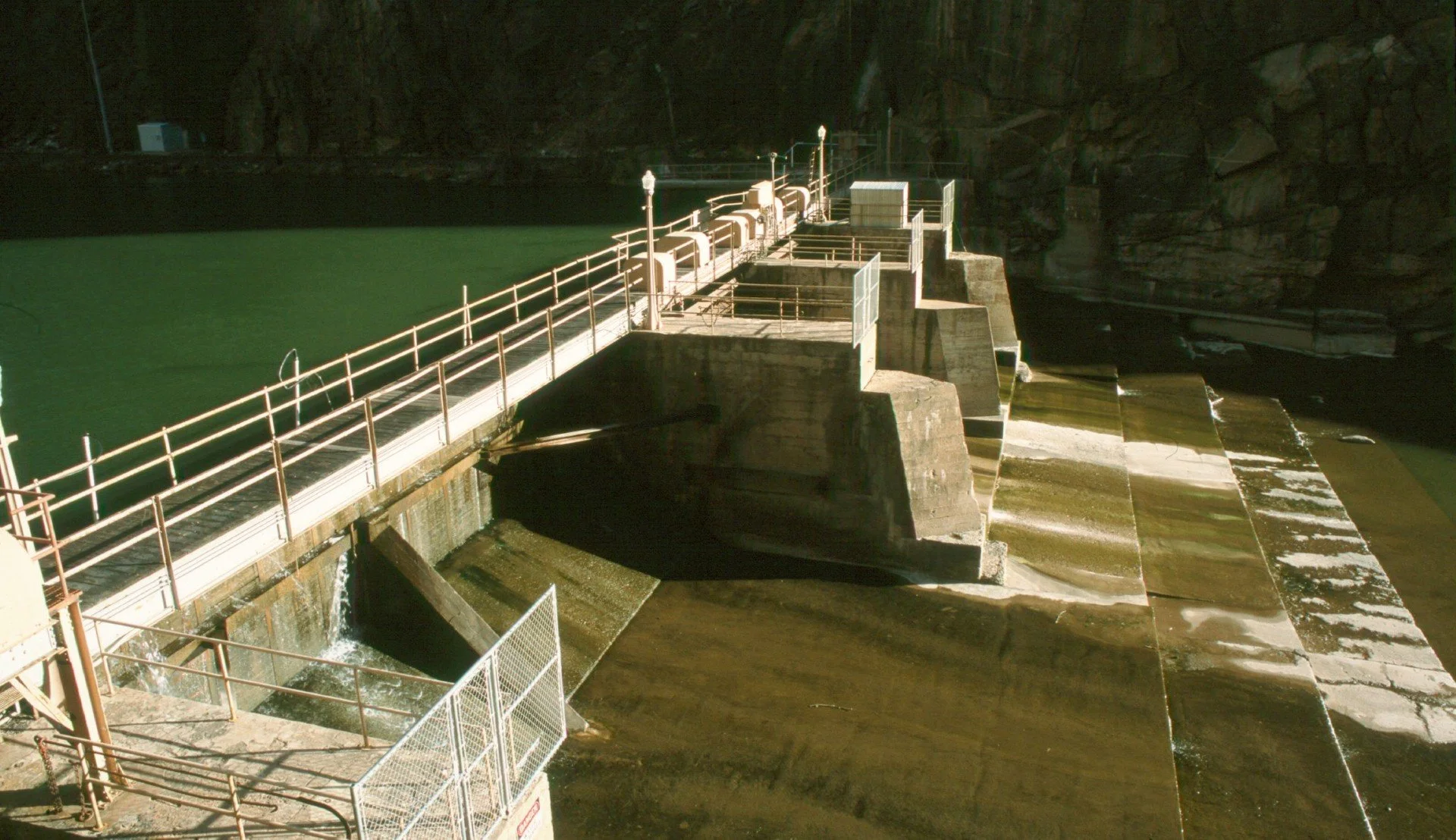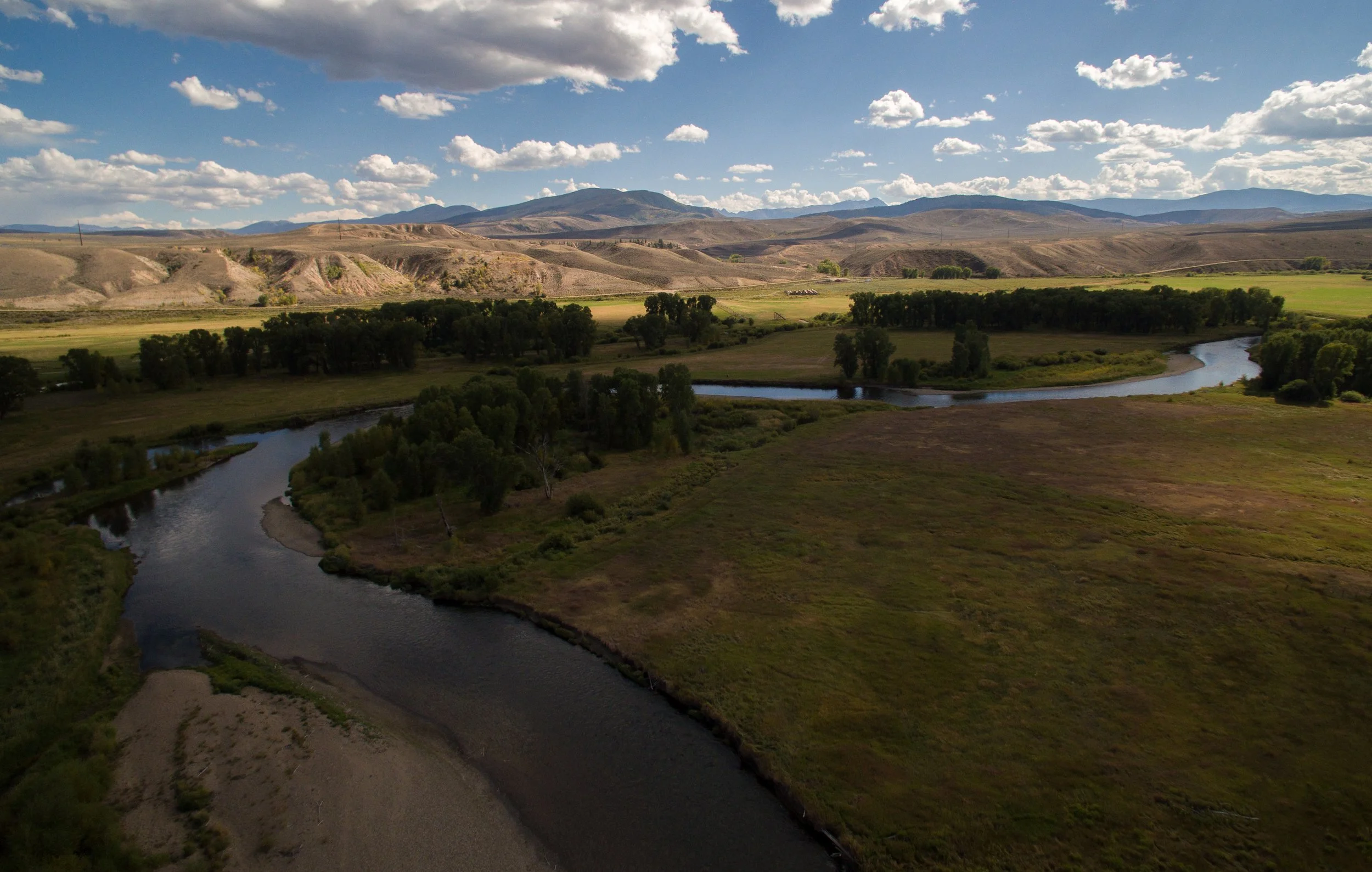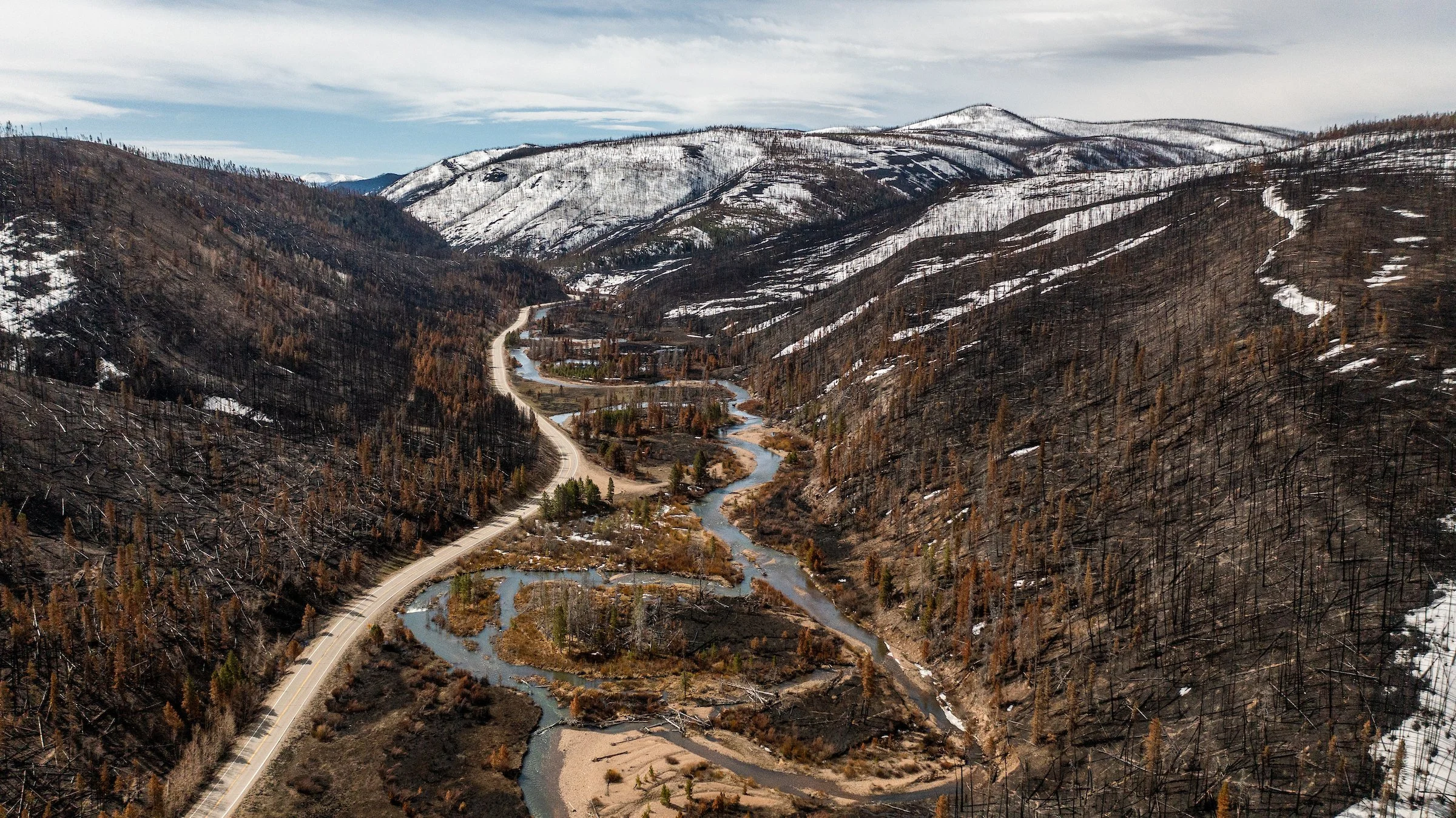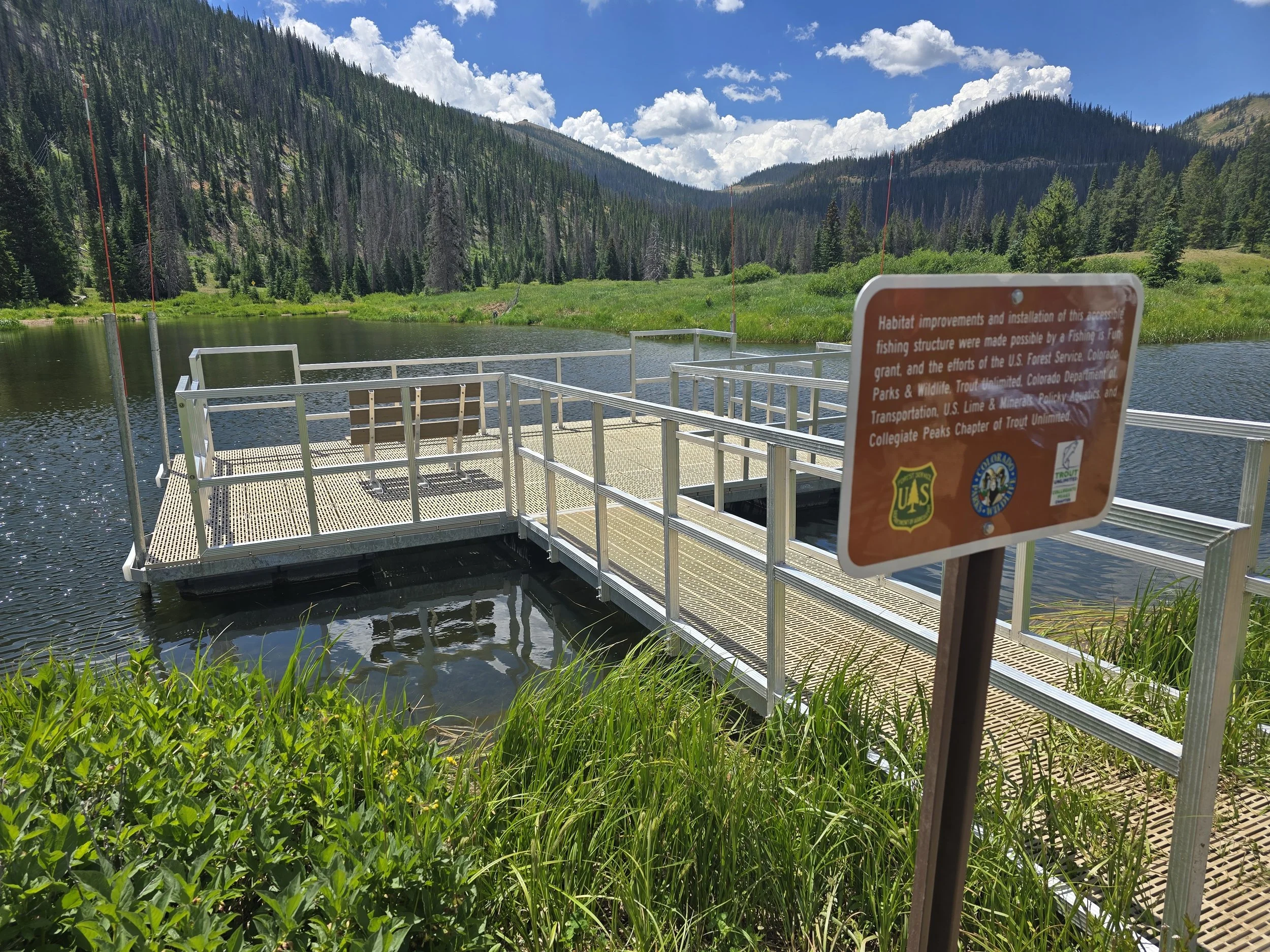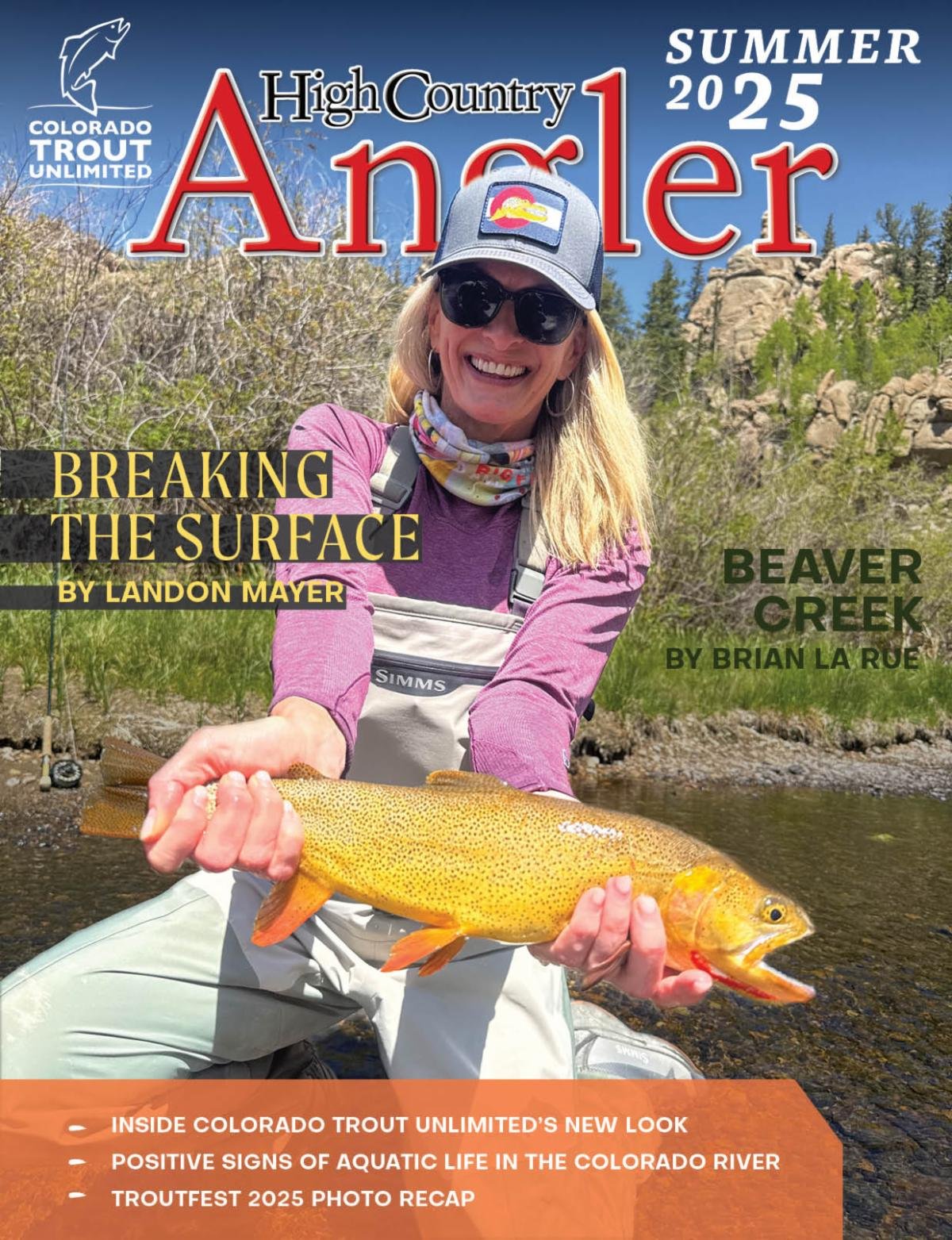On the weekend of July 12, Colorado Trout Unlimited welcomed a group of supporters to Chaffee County for a tour highlighting recent and ongoing conservation projects in the South Arkansas River watershed. The weekend included visits to project sites, time on the Arkansas River, and meals with TU staff, volunteers, and partners.
These tours are an opportunity to bring people together around shared conservation values. They allow River Stewardship Council members and other supporters to see their impact on the ground, connect with one another, and learn more about TU’s approach to protecting and restoring Colorado’s rivers and wetlands.
The projects visited during the tour reflect strong collaboration between Trout Unlimited, the U.S. Forest Service, state agencies, private partners, and the local Collegiate Peaks Chapter. Together, these efforts are improving stream health, reducing erosion, restoring fish habitat, and expanding public access.
Here is a summary of the projects featured during the tour:
Monarch Head-cut Stabilization
Near the top of Monarch Pass, the South Arkansas River begins at a steep head-cut that had been eroding rapidly toward Highway 50. In 2023, TU and the U.S. Forest Service worked with a local contractor to stabilize the site and prevent further damage to the stream channel. Project cost: $15,000.
Monarch Gravel Mine Reclamation
In 2019, TU’s Abandoned Mine Lands program partnered with Frontier Environmental to reclaim 2 acres of a former gravel mine that was sending sediment into the river. Funding came from a CWCB grant, the NFF Ski Conservation Fund, and private donations. The success of this work led Monarch Ski Area to adopt similar erosion control techniques on its own property. Project cost: $81,000.
Monarch Park Ponds Habitat and Access Improvements
This partnership project involves TU, the Collegiate Peaks Chapter, Colorado Parks and Wildlife, CDOT, the U.S. Forest Service, US Lime and Minerals, and private landowners. The goal is to improve fishing access and habitat in a high-use area, especially for anglers with limited mobility. In 2023, 1,500 cubic yards of sediment were dredged from Ponds 4 and 5 and repurposed at the Madonna Mine reclamation site downstream. Additional dredging and 450 feet of stream habitat restoration are planned. The total project cost remains under $100,000 due to in-kind support and matching funds.
South Arkansas River Restoration in Salida
This project will restore 1.2 miles of the South Arkansas River between its confluence and County Road 107. The reach spans nine landowners, including the City of Salida. Planned improvements include better fish habitat, sustainable public access, an educational trail, improved fish passage, and increased flood and wildfire resilience. A CTU Colorado Rivers grant was used as match funding to secure a CWCB grant for engineering design. The 60 percent design milestone was reached in mid-July.
Conservation tours like this one are not just about seeing projects. They are about strengthening the network of people who care about Colorado’s rivers and building a sense of shared commitment to their future.
With an annual gift of $1,000 or more, you can become a member of Colorado TU’s River Stewardship Council. Your support helps us protect native trout, engage future conservation leaders, improve habitat, and advocate for smart, fish-friendly management of our public waters. RSC members receive invitations to exclusive donor trips and our annual donor dinner.
Learn more at https://coloradotu.org/donate

